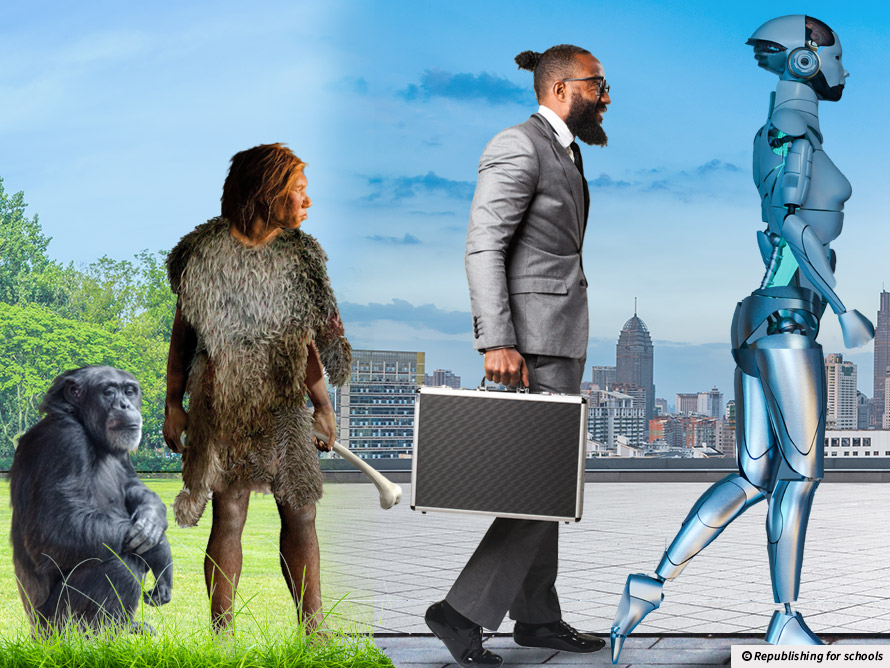Is this good news? AI is advancing at an incredible pace. A human-beating superintelligence is growing close. It could transform the world forever. But not everyone welcomes it.
This could be the year… AI dominates humans
 Ascent of man: Some think superintelligent AI might cause human extinction.
Ascent of man: Some think superintelligent AI might cause human extinction. Glossary
Las Vegas - A city in the desert of Nevada, USA. It is known for its casinos and gambling culture.
Artificial Intelligence - Artificial intelligence, or “AI,” is the ability for a computer to think and learn. With AI, computers can perform tasks that are typically done by people, including processing language, problem-solving, and learning.
OpenAI - An American artificial intelligence company. It says its mission is to "benefit all of humanity".
ChatGPT - An Artificial Intelligence chatbot released in November 2022.
CEO - The Chief Executive Officer is the highest ranking person in a company. They are responsible for making decisions about the company's future.
Frankenstein's monster - In Mary Shelley's novel, Victor Frankenstein creates a living monster from the dismembered body parts of corpses.
Deepfakes - This technique uses artificial intelligence to change the identity of a person in an image or a video — or to make it appear that a person is saying or doing something that they never said or did.
